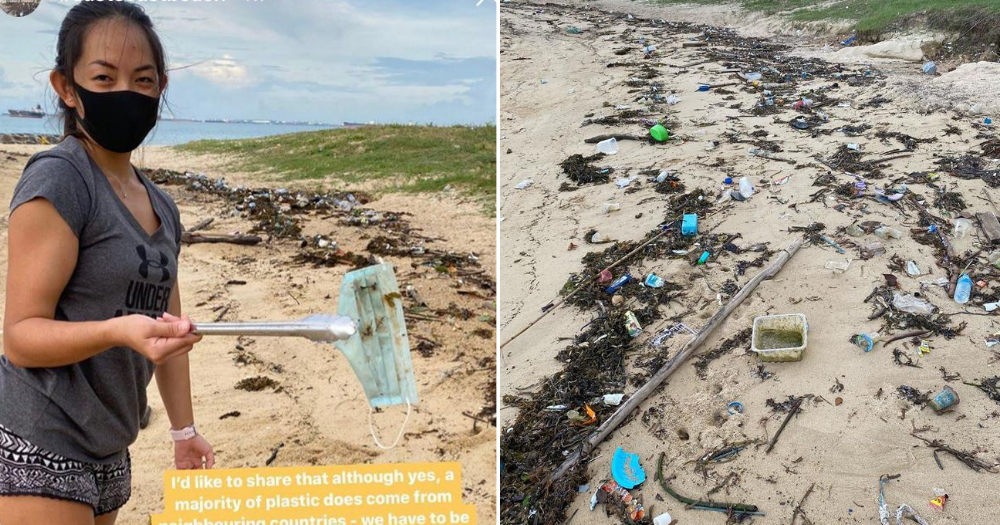While most people might spend their early mornings before work taking the time to have breakfast or even sleep in, one young Singaporean lady named Samantha Thian spends it picking up trash on the beaches of East Coast Park.
For an hour from 7am to 8am, Thian will head down to the park, equipped with trash bags and tongs to help clear the debris that washes ashore.
This is her form of "morning exercise", which she does around four times a week, she told Mothership.
Thian said that on these days, she will wake up at around 6:30am before cycling to East Coast Park which is near her house.
Noticed large amounts of trash during circuit breaker
Thian, who works full time as a sustainability manager at supply chain management firm Havi Group, said she started noticing the large trash pileup when she visited the park for walks during the circuit breaker period.
This she said, was likely due to the monsoon season.
She documented the sight in a series of Instagram stories.
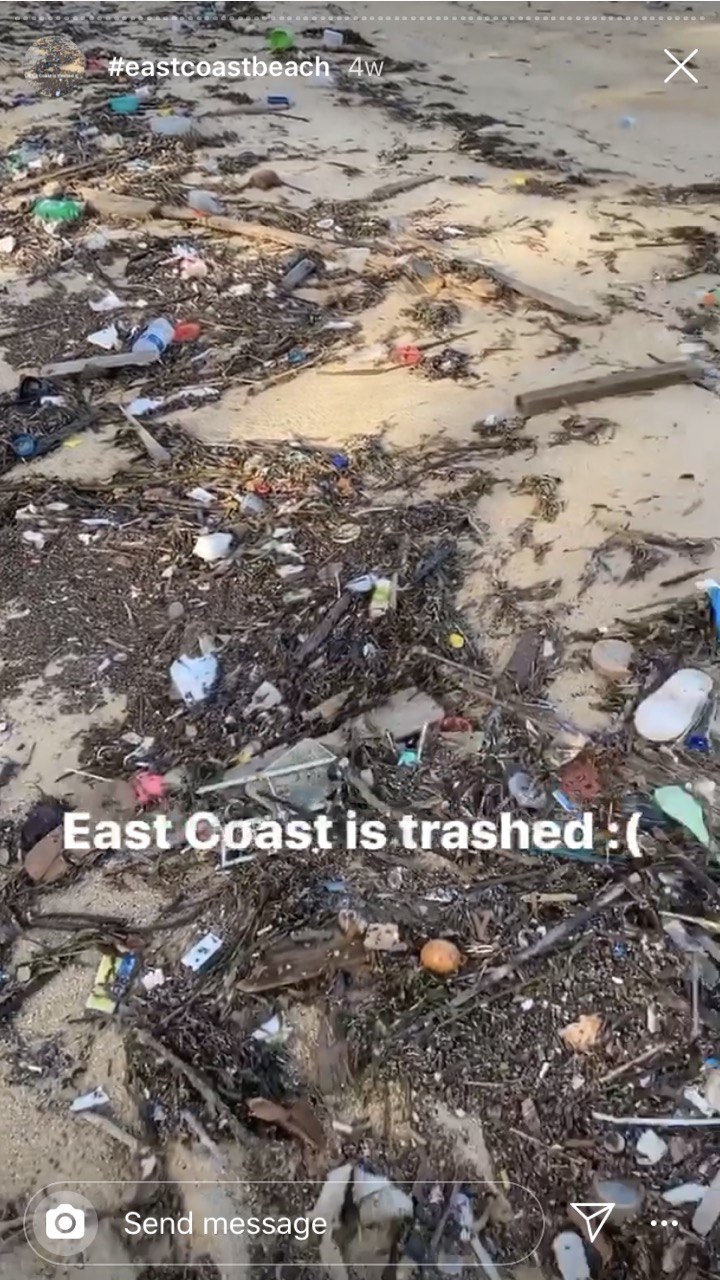 Screenshot from sammthian / IG
Screenshot from sammthian / IG
Thian then decided to take it upon herself to tidy that stretch of beach. Here's the before and after.
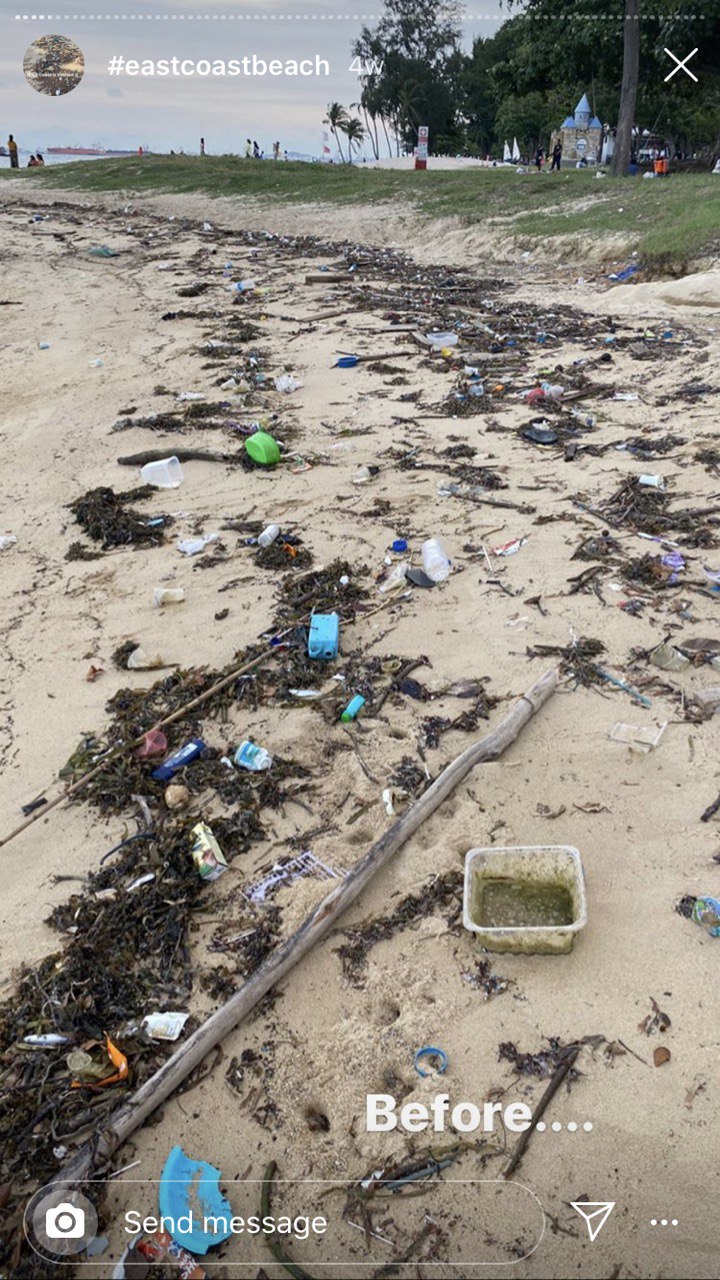 Screenshot from sammthian / IG
Screenshot from sammthian / IG
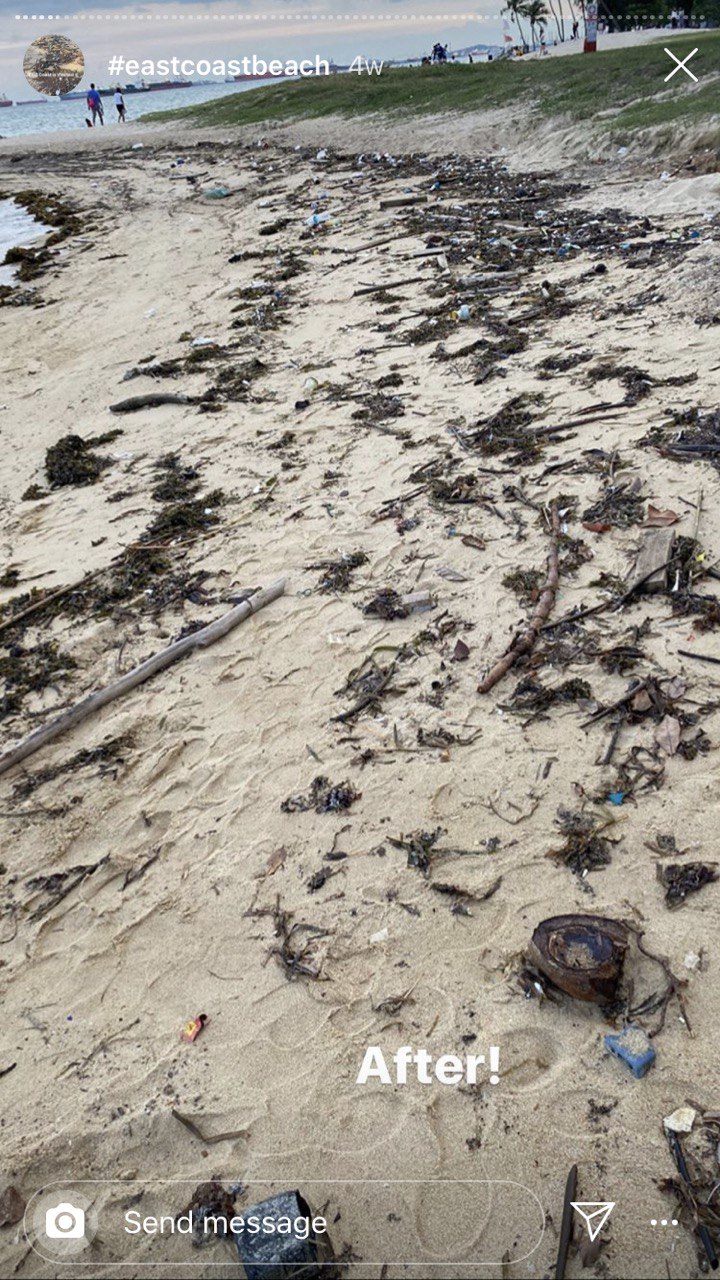 Screenshot from sammthian / IG
Screenshot from sammthian / IG
Although Thian had managed to clear quite some trash in an hour, as seen from the filled plastic bags, she shared on the Instagram story that she felt "highly overwhelmed" at how she was apparently unable to make a dent in clearing the lines of trash extending from one end of the beach to the other.
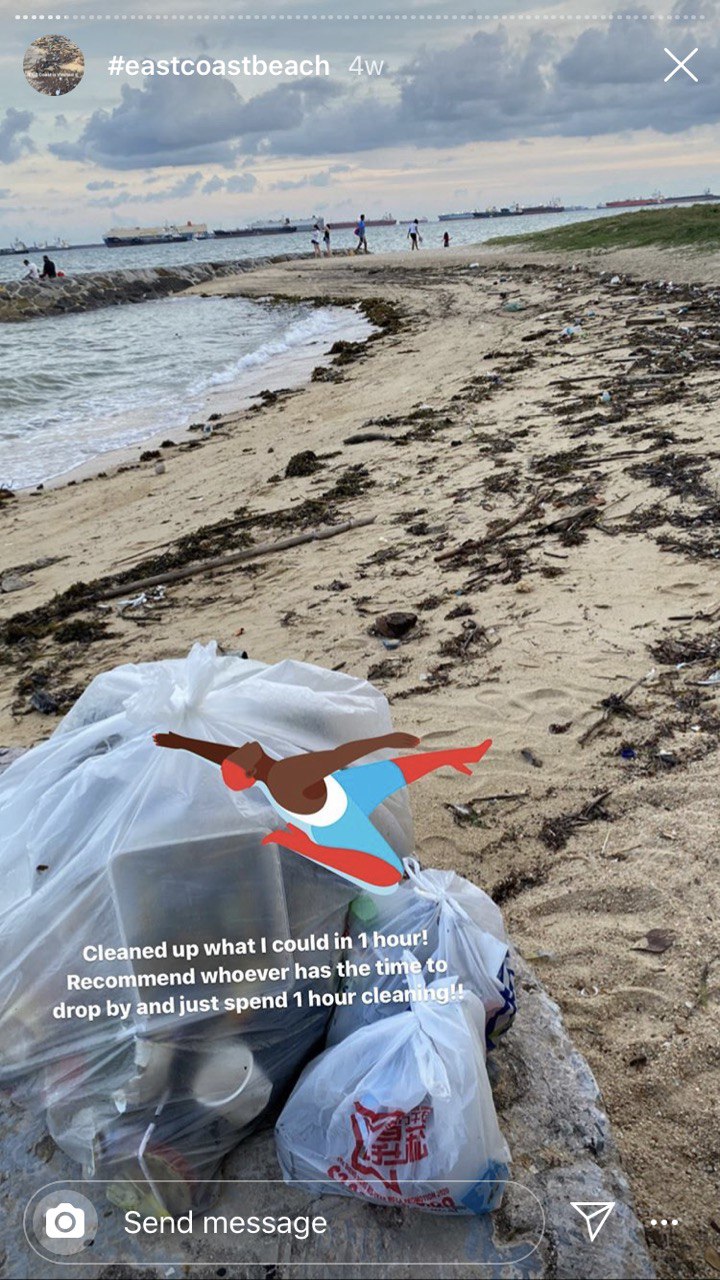 Screenshot from sammthian / IG
Screenshot from sammthian / IG
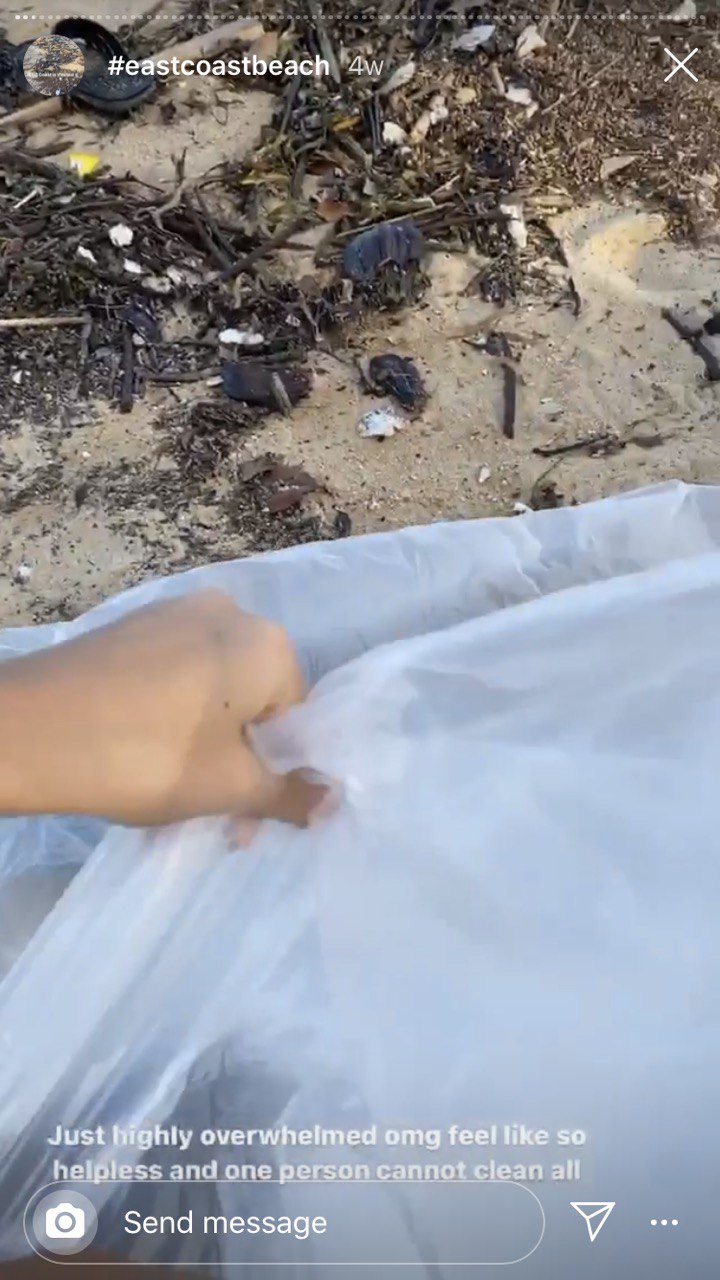 Screenshot from sammthian / IG
Screenshot from sammthian / IG
800-strong Telegram group
A subsequent call for help on her Instagram was what led to the idea of creating the "East Coast Beach Plan", a Telegram group Thian started on July 3 for anyone and everyone who would like to help clean up the park's shores.
Members can simply join the group and organise cleanups with other members on whichever days they are free.
For ease of organisation, Thian created a simple Google document as well where members can input their names under the various cleanup sessions.
Not only does the Telegram group aid in coordinating efforts and disseminating information, Thian added that it helps to build and bring together a community of like-minded individuals too.
In the group, individuals self-coordinate and self-organise five-pax cleanups among themselves, as opposed to organising a large cleanup event.
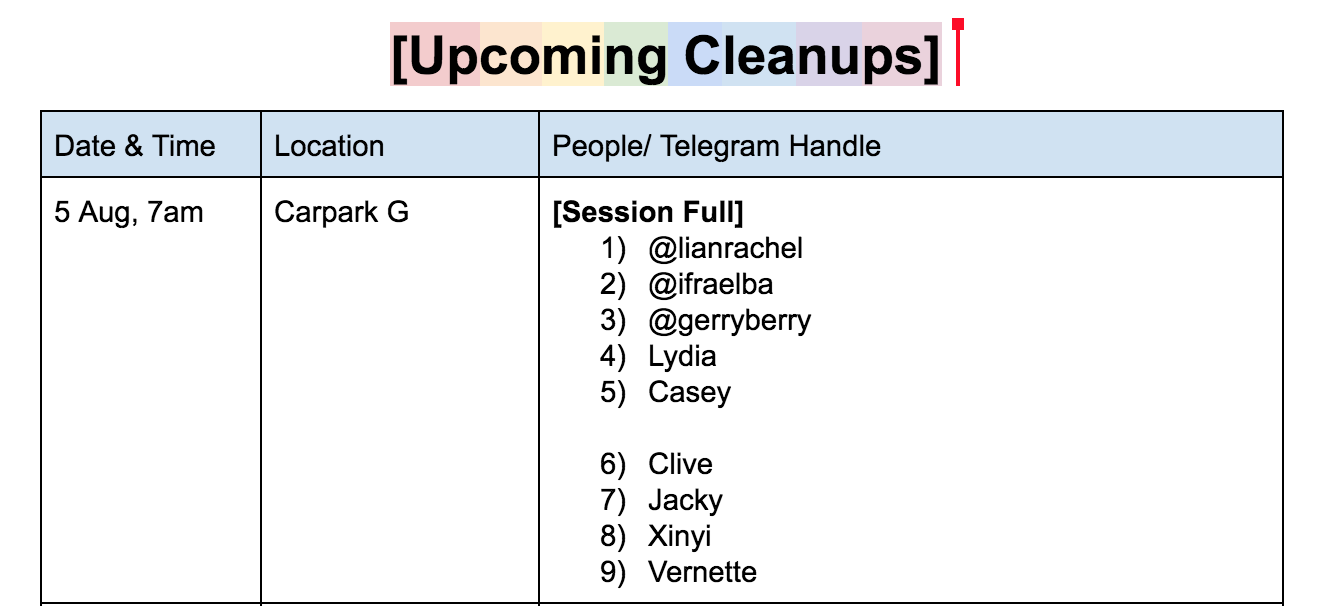
The group has even planned a National Day initiative — to challenge each group of five (group capacity limited due to social distancing measures, of course) to pick up five bags of trash.
Thian shared that in the beginning, she would go for cleanup sessions by herself. Slowly as more people joined, Thian would clean up the beaches with strangers from the group who "randomly" join the sessions.
Some of the group's members don't stay strangers for long though.
"Actually every time I go there are always strangers, but some of them join me for a few sessions after that and we became friends," she said.
The group has now amassed over 800 members, with several regularly sending pictures of their efforts and quirky trash findings to the chat.As of Aug. 4, an impressive total of 41 cleanups have been carried out since the start of July.
Discarded masks found among other trash
Thian is no stranger to the sight of trash on our beaches — prior to this, she has been participating in beach cleanups for the past 10 years, since she was a teenager.
She commented that most of the trash she sees are dominated by plastic items like plastic containers, straws, cups and cutlery.
Such trash potentially originates from a variety of sources — offshore platforms like fish farms, passing ships or even neighbouring countries.
The debris is an annual occurrence, the result of the Southwest monsoon. Trash is washed ashore by the tide during the monsoon season, which lasts from June to September.
During this period, the National Environment Agency (NEA) increases the frequency with which they deploy cleaners to the beach, from the usual twice weekly to four times a day, at recreational beaches.
Here's an observation that stood out this year when Thian did her clean ups.
One item that Thian said she encounters frequently on the shores are discarded face masks, a clear and unintended by-product of the ongoing pandemic.
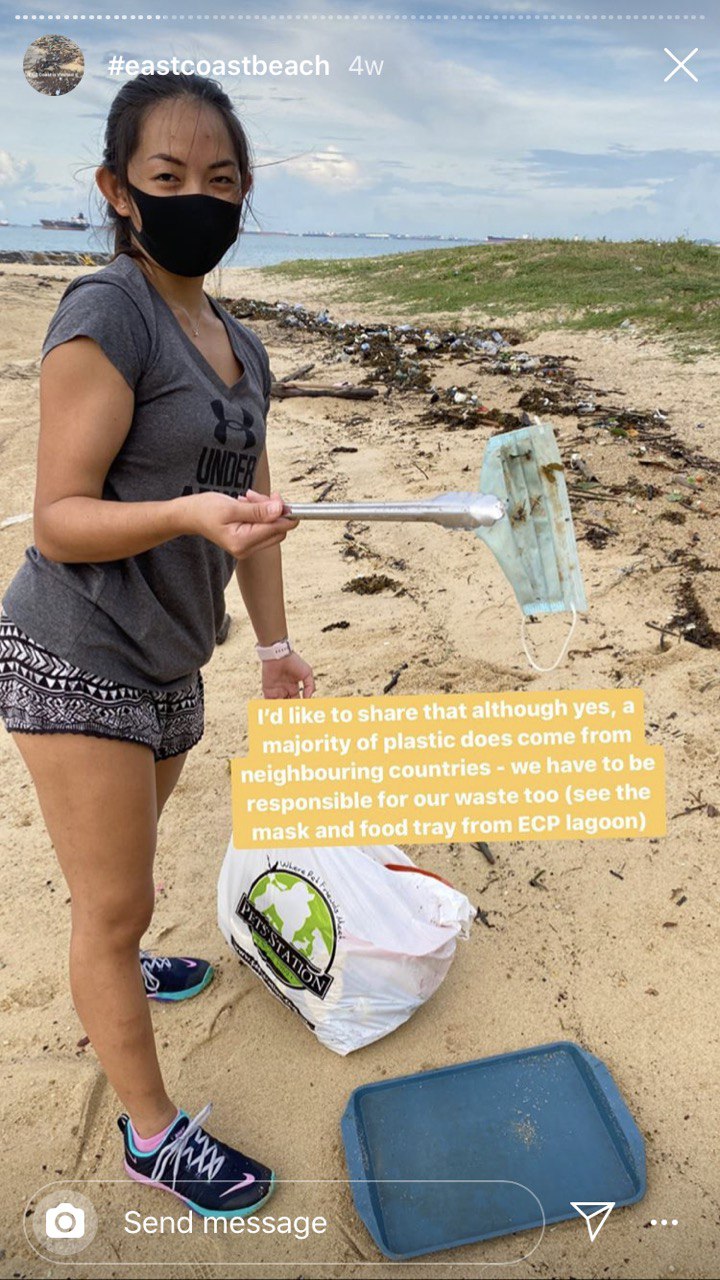 Screenshot from sammthian / IG
Screenshot from sammthian / IG
Will continue cleanups as long as there is a need
Thian shared that her passion for the environment was sparked when she first started diving at the age of 16. Since then, she has become more conscious of her consumerism and the waste she produces.
Not only does Thian carry out these cleanups regularly during her free time, she also has a side hustle as the founder of homegrown start-up Seastainable.
The start-up sells eco-friendly products such as metal straws, reusable containers and tumblers, and 50 per cent of its profits are channeled towards marine conservation efforts.
Additionally, Thian is currently pursuing a part-time Masters in Environmental Management at the National University of Singapore.
Clearly, she has her hands pretty full.
But Thian isn't planning on stopping anytime soon.
When asked how long she would continue her beach cleanups for, she said she would continue "as long as there is a need".
She said that despite how some might believe that the onus should be on businesses and governments to clean up their act, individuals are not absolved of their responsibility to the environment.
I think I still [feel like we're making a difference]. If no one does anything, who will clean up [the beaches]? I mean yes of course the government needs to implement policies but that doesn't take away from the fact that we've already caused a lot of pollution in the ocean!"
She doesn't feel demoralised picking up others' trash either — Thian says she simply takes it as "good fun and exercise", and that doing her part helps her "feel better".
And as much as she champions individual effort, Thian hopes that the Singapore government will continue looking into putting in place extended producer responsibility (EPR) laws for plastic waste.
Currently, under the new Resource Sustainability Act passed in Sep. 2019, Singapore established an EPR framework for e-waste which will make it compulsory for retailers and producers collect and treat the e-waste they produce.
Ultimately, Thian's goal is a simple one — to raise awareness of the significant impact of plastic pollution on the marine environment.
https://www.instagram.com/p/CDFmU5tFISH/
Other initiatives
Thian isn't the only one galvanising action to clean up Singapore's beaches.
Green nudge, a business which conducts workshops and events to advocate on environmental issues, has been helping out with the cleanups as well.
The business rents out beach cleanup tool kits for S$25 per week.
https://www.instagram.com/p/CCf3aaEH5S_/
The Conscious Two, two women who help raise awareness on environmental issues, are also aiming to start a social media trend to incorporate picking up trash into one's daily lives.
On their Instagram page, they nominated various friends and users to spend two minutes to pick up five pieces of trash and donate S$5 to local beach cleanup community Seven Clean Seas.
https://www.instagram.com/p/CDAg06WnOkU/
If you're looking to do your part and carry out your own beach cleanup, here are some quick tips to note.
And of course, do abide by safe distancing regulations during this period by limiting beach cleanup groups to five people.
Top photo from Samantha ThianIf you like what you read, follow us on Facebook, Instagram, Twitter and Telegram to get the latest updates.
